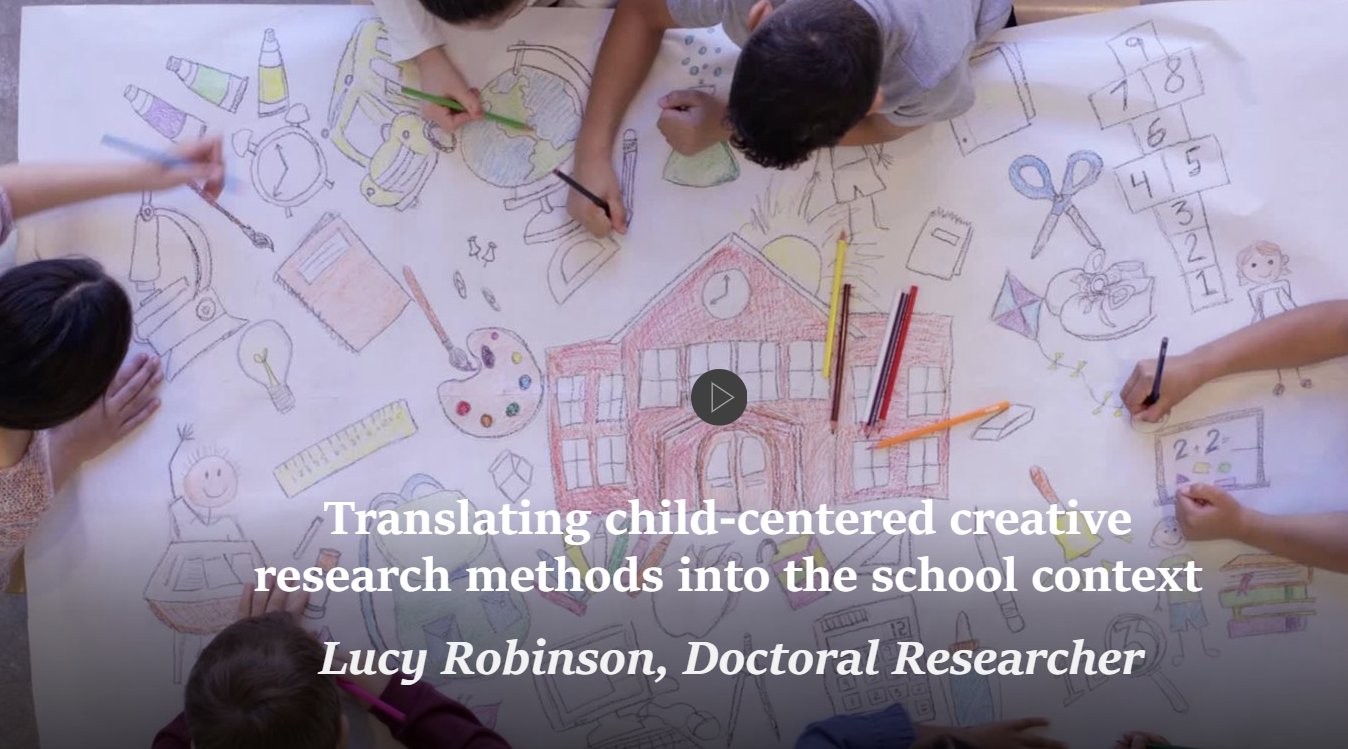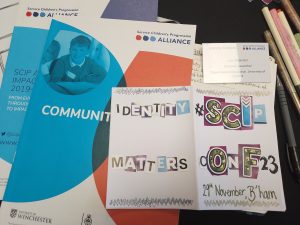SCiP Alliance Annual Conference ‘Identity Matters’

by Lucy Robinson, DPhil student
On 29th November 2023, I had the pleasure of attending and delivering a workshop at the SCiP Alliance’s Annual Conference, on the theme ‘Identity Matters’. The conference sought to gather “practitioners, researchers, policymakers and funders to focus our collective attention, expertise and effort on the question of Service child identity, on Service children’s identities” and explore “why identity matters, broaden our understanding of the diverse expressions of what it means to be a Service child, and how, by considering identity matters in our work, we can help Service children to thrive” (SCiP Alliance, 2023).
Opening the conference was a keynote from Phil Dent, Director of the SCiP Alliance, in which he conceptualised service children’s identities as ‘distinctive, diverse and dynamic’; a thread that ran throughout the day and very much underpins my own research. The conference had a packed schedule with exhibitions, a further keynote, a panel discussion and a range of workshops to attend. As a doctoral researcher in this field (indeed, my thesis title is: How does military life shape service children’s identity and school experiences?), the annual conference is the perfect space to share my research and foster new connections. Thankfully, the schedule allowed plenty of time for networking and gave me the opportunity to meet with colleagues, old and new. It was particularly lovely to connect in person with three PhD students in the early stages of their respective research projects.
In the morning, I ran a workshop titled ‘Translating child-centered creative research methods into the school context’, attended by a range of stakeholders. Over the hour, I gave a brief outline of my doctoral research (including its aims and link to school practice) before going into greater detail about one of the creative research methods that I had utilised in my research – the ‘All about me self-portrait and relational map’. I spoke about the rationale behind my choice of this method and how it linked to my research questions before sharing some examples created by my research participants.
To highlight the transferability of the method into the school context, I invited workshop attendees to make their own ‘All about me self-portrait and relational map’. Whilst doing so, I asked attendees to think about what questions it brought up for them and how they might translate it into their own professional contexts, whether in schools or not. It was gratifying to speak to one attendee who informed me that they would be bringing the activity back to their team to use as part of their mentoring programme for vulnerable ex-prisoners, to open a discussion on their identity after leaving the prison system.
The last 25 minutes or so of the workshop was dedicated to questions and discussion. It was a pleasure to talk in greater depth about details of my recruitment process, research ethics and to discuss the nuances around the relationship between service rank and socio-economic status and the potential impact this has on service children’s living experiences.

In the afternoon, I attended a fantastic workshop by Forces Children Scotland, a charity that supports children and young people from military families (serving and veteran), by providing opportunities and “amplifying their voices to inspire change” (Forces Children Scotland, 2023). In the workshop, I heard from young people from military families about their involvement in the charity’s various projects. I was particularly struck by how thoughtfully the charity had co-produced work with these young people to ensure their voices and experiences were embedded, rather than an afterthought. It was clear from my conversations with these young people about just how much they had benefited from their involvement in terms of gaining confidence and new skills and having a continuous form of support in place as their lives continued to be shaped by the military.
To find out more about the SCiP Alliance, have a look at their website or follow them on X (formally known as Twitter), @scipalliance.
